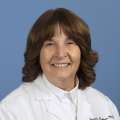Spinocerebellar ataxias (SCA) are genetic neurological diseases that cause imbalance, poor coordination, and speech difficulties. There are different kinds of SCA and this study will focus on types 1, 2,3, and 6 (SCA 1, SCA 2, SCA 3 , also known as Machado-Joseph disease and SCA 6). The diseases are rare, slowly progressive, cause increasingly severe neurological difficulties and are variable across and within genotypes. The purpose of this research study is to bring together a group of experts in the field of SCA for the purpose of learning more about the disease.
The research questions are:
- How does your disease progress over time?
- What are the best ways to measure the progression?
- Do some genes, other than the gene that is abnormal in your disease, have any effect on the way the disease behaves?
This is a nationwide study and we expect that 800 patients will participate all over the USA. The participants will be in the study for an indeterminate period of time. Study visits will be done every 6 or 12 months depending on the participating site.
Clinical Research Consortium for Spinocerebellar Ataxias (CRC-SCA) to Study Natural History Study of and Genetic Modifiers in Spinocerebellar Ataxias (SCA)
If you decide to participate in this study, we will collect 1 tablespoon (15 milliliters) of blood during the first/screening visit in order to extract your DNA. The sample will be sent to the research laboratory of Dr Stefan Pulst at the University of Utah for the study of genetic factors that modify the course of your disease.
As part of this study, we would like to put some of your blood in a tissue repository. Submission of your sample to the repository may give scientists valuable research material that can help them to develop new diagnostic tests, new treatments, and new ways to prevent diseases. Scientists will not use your sample, or material isolated from it, for commercial products or services. Your blood will be kept by Dr. Stefan Pulst.
Your sample will not have your name or other personal information linked to it. Your sample may be shared with researchers at the University of Utah and at other institutions. The only information we will keep with the sample is your age, what disease you have, the age at onset of your disease and the duration of the disease. The principal investigator at your site will be the only person who can link the sample to you. You can have your sample removed from the bank later by written request to your PI.
You do not have to participate in the genetic modifier study or the tissue repository to be in the remaining part of this study.
You will also be asked to complete several assessments that include questionnaires, motor function test, a neurological exam and a physical exam.

